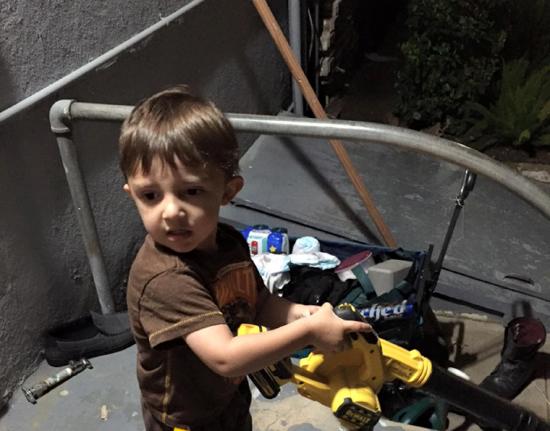16.4: Overview of Social Cognitive Learning Theory
- Page ID
- 140964
Social Cognitive Learning Theory
Social Learning Theory, or learning by watching others, was developed by Albert Bandura (1977). Social Learning Theory holds that portions of an individual's knowledge acquisition can be directly related to observing others within the context of social interactions, experiences, and outside media influences. Young children frequently learn behaviors through imitation: they learn by modeling or copying the behavior of others, especially when they do not know what else to do.[1] This is called observational learning. Bandura theorized that the observational learning process consists of 4 parts. The first is attention. To learn, one must pay attention to what one is observing. The second part is retention: one must retain the observed behavior in one's memory. The third part of observational learning, initiation, acknowledges that the learner must be able to execute or initiate the learned behavior. Lastly, the observer must be motivated to engage in observational learning (Bouton & Lang, 1960). Bandura’s theory states that when people observe a model performing a behavior and experiencing its consequences, they remember the sequence of events and use this information to guide subsequent behaviors. Watching a model can also prompt the viewer to engage in previously learned behavior (Bandura, 1986, 2002).[2]

Do Parents Socialize Children or Do Children Socialize Parents?
Bandura (1986) suggests an interplay between environment and individual. People are not merely the product of their surroundings; instead, people influence their surroundings. There is also an interplay between personalities and how events are interpreted. This concept is called reciprocal determinism. An example of this might be the interaction between parents and children. Parents influence their child's environment, and children influence parents as well. Parents may respond differently with their first child than with their fourth. Perhaps they try to be the perfect parents with their firstborn, but by the time their last child comes along, they have very different expectations of themselves and their child. Our environment creates us, and we make our environment.[4]
Criticism of Social Cognitive Theory
One of the main criticisms of social cognitive theory is that it lacks unification: the different aspects of the theory appear disconnected. The theory is also so broad that not all its parts are fully understood or integrated into a single explanation of learning. It is limited because not all social learning can be directly observed, and it ignores maturation. Understanding how a child learns through observation and how an adult learns through observation is not differentiated, and developmental factors are not acknowledged.[2]
[1] Contemporary Theories on Development is shared under a CC BY-NC-SA license and was authored, remixed, and/or curated by Martha Lally & Suzanne Valentine-French
[2] Zhou, Molly and Brown, David, "Educational Learning Theories: 2nd Edition" (2015). Education Open Textbooks. CC BY-NC-SA
[3] Image by Rebekah Creasy is licensed CC: BY-NC
[4] Psyc 200 Lifespan Psychology by Laura Overstreet is Licensed CC BY: Attribution

